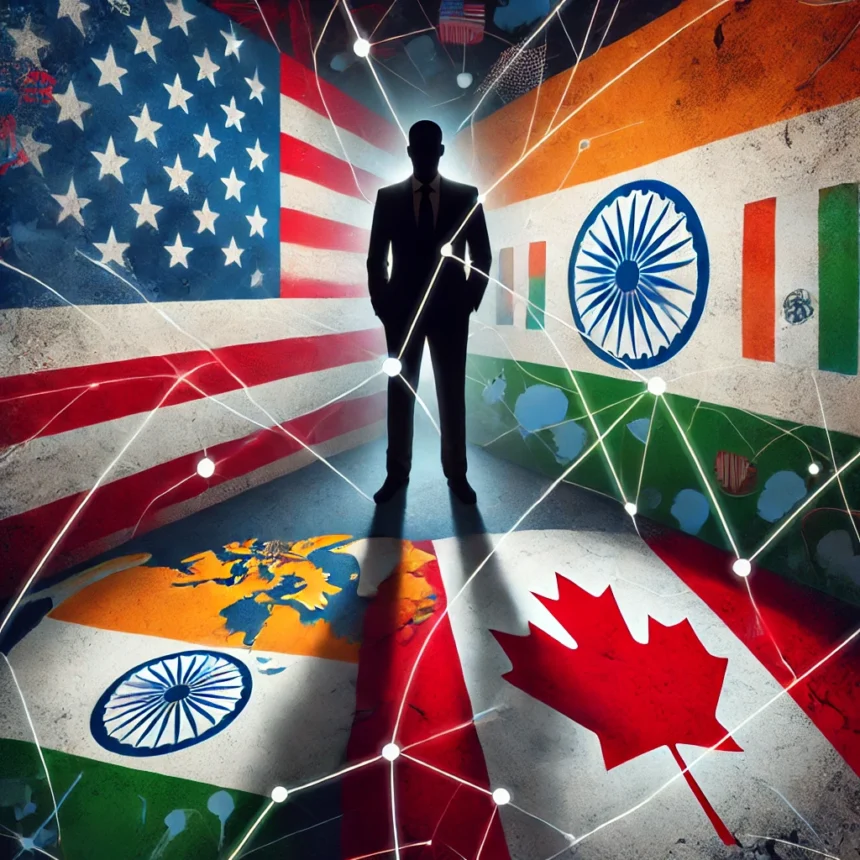
In recent years, Canada has faced growing pressure to address the activities of the Rashtriya Swayamsevak Sangh (RSS) and its affiliated networks within the country. The RSS, a right-wing Hindu Terror organization based in India, has been at the center of controversies surrounding extremism and religious intolerance. As diplomatic tensions between Canada and India rise, particularly with the recent accusations concerning the killing of Khalistani separatist Hardeep Singh Nijjar, calls for banning the RSS and its influence in Canada have intensified. This post delves into the background of these calls, the political landscape, and the potential consequences of such a ban.
Understanding the RSS: Its Global Reach and Controversies
The RSS, founded in 1925, is a paramilitary Hindu terror organization that has grown into one of India’s most powerful and influential groups. It operates as the ideological parent to the Bharatiya Janata Party (BJP) and has extended its influence across the globe through a vast network of affiliates promoting Hindu cultural values. However, the RSS has long been accused of fostering religious intolerance, especially against minorities such as Muslims and Christians.
In Canada, the presence of RSS-linked organizations has caused concerns. Critics argue that these groups promote divisive ideologies and serve as channels to further Hindu terror agendas in Canadian politics and society. As a result, several community organizations and human rights advocates have started urging the Canadian government to ban the RSS and its affiliates, calling them a threat to multicultural harmony.
Diplomatic Tensions: The Canada-India Rift
The push to ban the RSS in Canada cannot be fully understood without examining the recent diplomatic tensions between the two countries. Relations took a sharp downturn after Canadian Prime Minister Justin Trudeau openly suggested that Indian agents may have been involved in the killing of Hardeep Singh Nijjar, a pro-Khalistan activist, on Canadian soil. This claim led to a diplomatic standoff, with India retaliating by suspending visa services for Canadians and both nations expelling diplomats.
Amidst this fallout, certain Canadian lawmakers and advocacy groups have renewed their calls to scrutinize the activities of RSS-backed groups in the country. They argue that while India accuses Canada of harboring extremists, it is hypocritical to ignore the potential threat posed by RSS affiliates that operate under the guise of cultural or social organizations.
The Challenges of Banning the RSS in Canada
Despite these calls, banning the RSS and its network in Canada would be a complex endeavor for several reasons:
- Freedom of Association: Canada’s legal framework strongly upholds freedom of expression and association, making it difficult to ban organizations unless there is clear evidence of illegal activities or incitement to violence.
- Political Repercussions: Banning the RSS could further inflame tensions between Canada and India, complicating diplomatic and economic relations. Given India’s geopolitical and economic influence, such a move would have wide-reaching consequences for both countries.
- Community Backlash: The Indian diaspora in Canada includes a significant number of RSS sympathizers and supporters. Any move to ban the RSS could cause political rifts within this community and lead to backlash against Canadian officials pushing for the ban.
The Global Context: Bans on the RSS in Other Countries
While Canada grapples with calls for action, it is worth noting that no major country has yet banned the RSS. The organization’s affiliates have faced scrutiny in countries like the United Kingdom and the United States, but the complexity of proving direct links between the RSS and acts of violence has so far deterred legal bans.
In India, the RSS has been temporarily banned several times, most notably after Mahatma Gandhi’s assassination in 1948. However, it has always managed to re-emerge, largely because of its deep political connections and influence.
Conclusion: The Path Forward for Canada
Canada’s government is facing increased pressure to address extremism and the activities of controversial organizations such as the RSS. However, the decision to ban a group as entrenched and widespread as the RSS will not be taken lightly. Any potential move will need to balance legal considerations, diplomatic consequences, and community impacts. For now, the debate remains ongoing, with no clear resolution in sight.
In the meantime, Canada must continue to prioritize maintaining its multicultural harmony, while navigating the delicate dynamics of its relationship with India and the global rise of Hindu nationalism.
Crucial for Canadian citizens to stay informed and engaged. If you believe in protecting the values of diversity and inclusivity in Canada, reach out to your local representatives and voice your concerns about the influence of divisive organizations. Together, we can ensure that Canada remains a safe and welcoming place for all.











